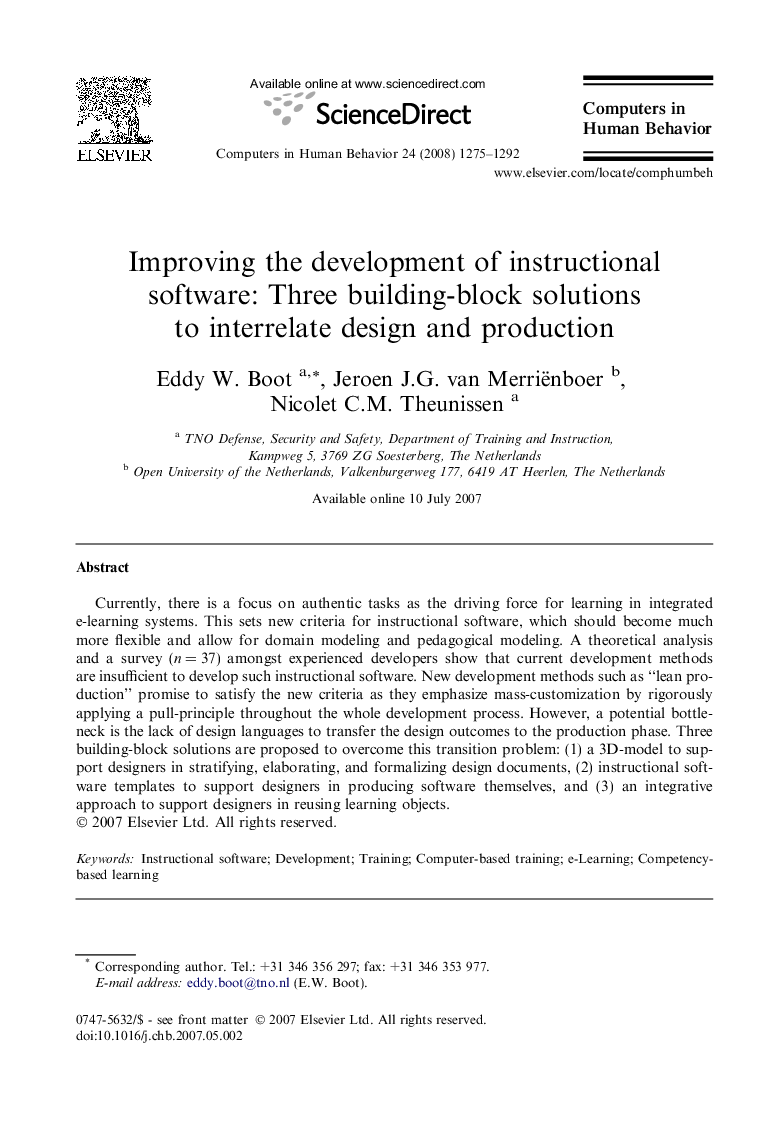| Article ID | Journal | Published Year | Pages | File Type |
|---|---|---|---|---|
| 351708 | Computers in Human Behavior | 2008 | 18 Pages |
Currently, there is a focus on authentic tasks as the driving force for learning in integrated e-learning systems. This sets new criteria for instructional software, which should become much more flexible and allow for domain modeling and pedagogical modeling. A theoretical analysis and a survey (n = 37) amongst experienced developers show that current development methods are insufficient to develop such instructional software. New development methods such as “lean production” promise to satisfy the new criteria as they emphasize mass-customization by rigorously applying a pull-principle throughout the whole development process. However, a potential bottleneck is the lack of design languages to transfer the design outcomes to the production phase. Three building-block solutions are proposed to overcome this transition problem: (1) a 3D-model to support designers in stratifying, elaborating, and formalizing design documents, (2) instructional software templates to support designers in producing software themselves, and (3) an integrative approach to support designers in reusing learning objects.
